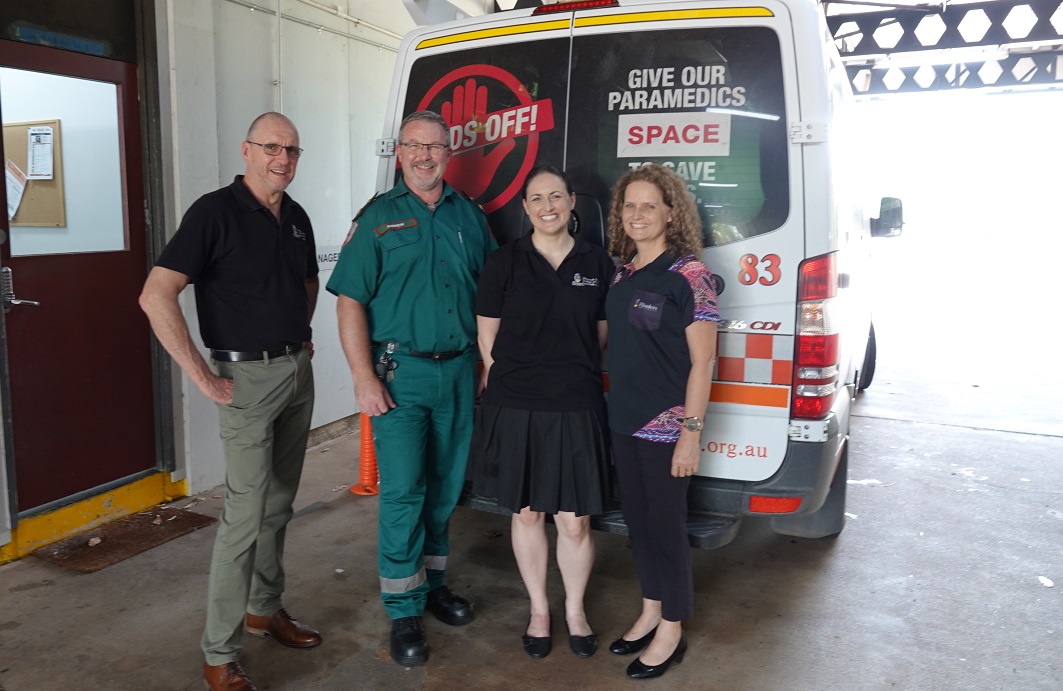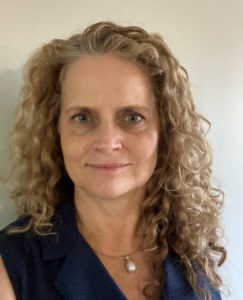
We spend a moment to chat with Associate Professor Narelle Campbell from Flinders NT, whose busy list of tasks involves working across a range of rural and remote health programs throughout the Top End.
What does your work focus on?
I’m based in Darwin and responsible for College of Medicine and Public Health Flinders activities in the Top End, which is Darwin, Katherine and Nhulunbuy – the top half of the Northern Territory. Our programs focus on students, the workforce and our community, undertaking teaching and research with an emphasis on rural, remote, Aboriginal and community issues. Specific programs include the NT Medical program, nursing and allied health student and supervisor support, and postgrad professionals support.
What journey led you to this point in your career?
My career has been a confluence of drive and pragmatism. I’m a speech pathologist who trained at Flinders and have worked in urban, rural and remote locations in SA and the NT. I was awarded a Rotary Ambassadorial Scholarship, which supported me to undertake a Masters of Education in Canada. This was a life-changing period that shifted my worldview on disability, culture and Indigenous peoples. It also resulted in lifelong friends. In 2001, we moved from Adelaide to Darwin, and in late 2003 I started work for the Flinders University in an academic role focused on the allied health workforce and student development. A series of mentors and managers have supported my development and transition through many roles, but by 2009 I realised that a PhD was critical to university academia and offered a unique opportunity to be a research apprentice. I researched what it means to be a successful allied health professional working in remote Australia – and the answer is that you need to have a sense of adventure, not be overly worried about risk, and feel confident that working as a generalist is valid and fulfilling.

Can you describe a challenge in your life and how you dealt with it?
Completing my PhD was definitely a challenge. I was working full time, living in Darwin with no local family members except my husband and three school-aged kids, and simultaneously researching my PhD. My advice to anyone contemplating such a thing: remember that you will finish the thesis one day, that perfect is the enemy of done, and that you can be very productive between the hours of 9pm and 2am. Set yourself some written goals and keep at them. When it comes down to it, a PhD is simply one coherent paragraph after another describing something amazing that you designed and investigated.
What is something you are most proud of?
Besides wearing the ‘funny PhD hat’ during graduation – which I am so proud of – I’m also very proud of my kids and husband. Without the support from my other half, I couldn’t have been successful at work or in research. The kids are now well-adjusted young adults living in London as a teacher, in Sydney as a paramedic and in Alice Springs as a police officer. I think that’s pretty cool, even though their distant locations and COVID-19 restrictions mean I can’t see them so much.
What does a normal day look like for you?
Lots of conversation, lots of thinking. I love that my job constantly presents me with challenges, lets me meet and work with such interesting people in so many different roles all over NT, interstate and internationally. Before COVID-19, my job required lots of travel, but the “new normal” means I’m now loving the Zoom meeting option because that gives me more time at home.
How do you like to relax or spend your spare time?
Sorry, spare time? Seriously though, less travel for work and an empty nest has meant I’ve revisited old skills and I crocheted some cushions for Christmas presents. The recipients even liked them! When the kids are at home, we like to water ski – and Northern Territory crocs don’t eat skiers, only swimmers. As an attempt to keep active, the other half and I also like riding our tandem bike. It’s a fun team effort.
A nationally recognised paramedic course is starting in the Northern Territory this year. The Flinders Bachelor of Paramedic Science is an Australian Health Practitioner Regulation Agency-approved program, and graduates will be qualified to pursue a career as a registered paramedic with any Australian state or territory ambulance service.

